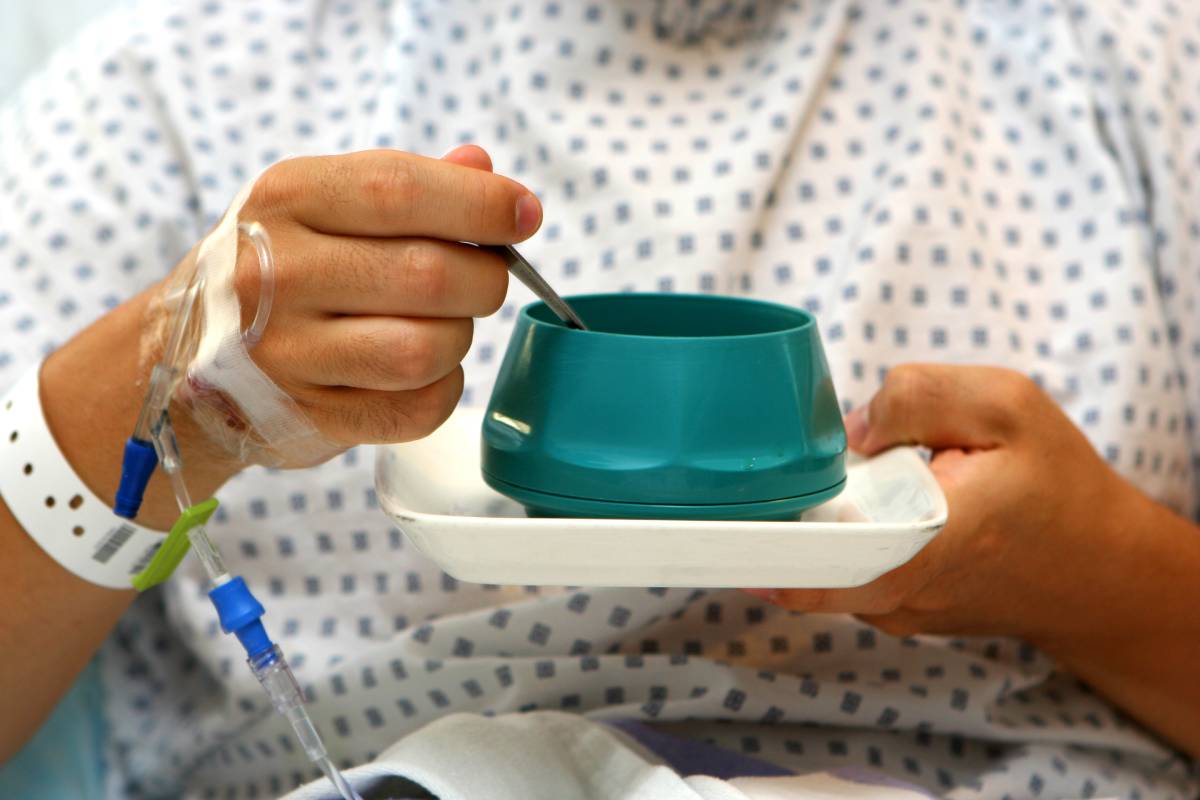Eating and drinking according to the guidelines of medical professionals can help reduce complications and shorten recovery time after undergoing general anesthesia. Following a procedure, a patient’s intake of liquids and solids must be carefully monitored in order to allow the patient’s digestive system to resume normal function (5). Additionally, consumption of adequate nutrients and proper hydration are essential to preventing complications and supporting recovery (5).
Often, patients may begin eating and drinking soon after anesthesia on a clear liquid diet, which permits them to consume foods that are clear and liquid at room temperature (1). These include tea, juices, gelatin, broths, and soda. Then, a patient may transition to a full liquid diet, which also includes consumption of milk, ice cream, creamy soups, etc., before finally resuming a solid food diet (2). In particular, patients are advised to consume enough fiber to prevent constipation—which commonly occurs after anesthesia or while taking pain meds—and plenty of protein for the body to produce healthy new tissue (5). During this time, foods higher in fat, which are harder to digest, should be avoided.
Traditionally, patients who underwent general anesthesia were not allowed to drink water for four to six hours following the procedure (6). This practice has been thought to help reduce nausea and vomiting. In actuality, however, there has been little research to support that withholding postoperative oral hydration has significant benefits for those who have undergone non-gastrointestinal procedures. A study in China from 2014 compared the results of giving two different groups of patients early vs. delayed oral hydration, with the first group receiving their first drink immediately after recovering from anesthesia and the second, four hours later (6). Early oral hydration was not correlated with a notable difference in gastrointestinal symptoms (6). In fact, patients who received early oral hydration experienced a significantly lower thirst score 20 minutes after their first drink, when the other group had yet to have any water (6). Additionally, patient satisfaction was higher and levels of throat discomfort were lower in the earlier group (6).
Early postoperative food has also been shown to be safe and effective in more recent research. A study from 2001 demonstrated that women who consumed solid food shortly after a cesarean had a shorter average hospital stay by almost 24 hours (4). The average reduction in hospital costs from these 24 hours was $1262. Moreover, those who were fed earlier also experienced a faster return to normal bowel functions (4). Another study conducted among French anesthesiologists from 2013 to 2014 also demonstrated that earlier postoperative feedings allowed for a faster return to normal bowel functions and shortened hospitalizations (3). The effect on nausea and vomiting, however, was not clear (3).
More research needs to be done to study the effects of reducing the length of time before eating and drinking after general anesthesia, and to investigate the effects of early feeding on gastrointestinal symptom. While in the past, medical providers have withheld food and water for many hours, newer research is revealing that there is little support for these long-held practices. Ensuring that patients receive timely and adequate nutrition and hydration may help reduce recovery time, resulting in shorter hospitalizations and lower medical costs.Page Break
References
- A.D.A.M. Medical Encyclopedia [Internet]. Johns Creek (GA): Ebix, Inc., A.D.A.M.; c1997-2020. Clear Liquid Diet; [reviewed 20 Aug 2020]. Available from https://medlineplus.gov/ency/patientinstructions/000205.htm
- A.D.A.M. Medical Encyclopedia [Internet]. Johns Creek (GA): Ebix, Inc., A.D.A.M.; c1997-2020. Full Liquid Diet; [reviewed 20 Aug 2020]. Available from https://medlineplus.gov/ency/patientinstructions/000206.htm
- Le Pape, Sylvain et al. “Postoperative fasting after general anaesthesia: A survey of French anaesthesiology practices.” Anaesthesia, critical care & pain medicine vol. 37,3 (2018): 245-250. doi:10.1016/j.accpm.2017.11.012
- Patolia, D S et al. “Early feeding after cesarean: randomized trial.” Obstetrics and gynecology vol. 98,1 (2001): 113-6. doi:10.1016/s0029-7844(01)01387-4
- Whitlock, Jennifer. “What to Eat After Surgery and What to Avoid.” verywellhealth, 13 Jul 2022, https://www.verywellhealth.com/what-to-eat-during-your-recovery-after-surgery-3156923
- Yin, Xiaorong et al. “Early versus delayed postoperative oral hydration after general anesthesia: a prospective randomized trial.” International journal of clinical and experimental medicine vol. 7,10 3491-6. 15 Oct. 2014
